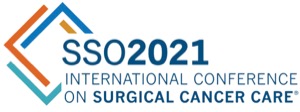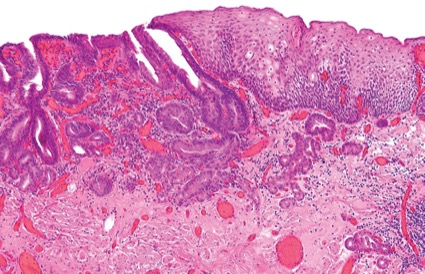
Adjuvant nivolumab is the first therapy to provide a statistically significant and clinically meaningful improvement in disease-free survival in patients with resected esophageal and gastroesophageal junction cancer. This news comes from research presented at the Society of Surgical Oncology 2021 International Conference on Surgical Cancer Care (abstract 94).
“The risk of recurrence after neoadjuvant chemoradiation therapy followed by surgery (trimodality therapy) remains high in esophageal or gastroesophageal junction cancer and there is no established adjuvant treatment,” said Guillaume Piessen, MD, PhD, of the University of Lille, Claude Huriez University Hospital, in Lille, France, who presented the findings. Nivolumab (Opdivo, Bristol Myers Squibb) offers a new standard of care in these patients, Dr. Piessen said.
The findings come from the CheckMate 577 trial, which is the first global, phase 3, randomized, double-blind study to report the efficacy and safety of a checkpoint inhibitor in the adjuvant setting after trimodality therapy for esophageal or gastroesophageal junction cancer (N Engl J Med 2021;384:1191-1203).
The trial enrolled 794 adults, of whom 532 received nivolumab and 262 were given placebo. Patients who had resected stage II/III esophageal/gastroesophageal junction cancer and received neoadjuvant chemoradiation therapy and had residual pathologic disease were randomized 2:1 to nivolumab 240 mg or placebo every two weeks for 16 weeks, followed by nivolumab 480 mg or placebo every four weeks. Maximum treatment duration was one year. The primary end point was disease-free survival.
Approximately 70% of patients had adenocarcinoma and almost 60% had a pathologic lymph node status of ypN1 or higher in both groups. Patients receiving nivolumab were predominantly male (84%) and white (81%), with an Eastern Cooperative Oncology Group (or ECOG) performance status of 0 (58%). They also had predominantly stage III disease (66%) and received a diagnosis of adenocarcinoma (71%). The median age was 62 years.
At a prespecified interim analysis, adjuvant nivolumab was significantly associated with improvement in DFS versus placebo (hazard ratio, 0.69; 96.4% CI, 0.56-0.86; P=0.0003). Median disease-free survival was doubled. Most treatment-related adverse events were grade 1 or 2. The incidence of serious adverse reactions leading to discontinuation was 9% or lower with nivolumab and 3% with placebo. The majority of treatment-related adverse events with an immunologic etiology were low grade, with grade 3/4 events occurring in fewer than 1% of patients in the nivolumab group.
Based on the promising data from the trial, the FDA accepted the supplemental Biologics License Application for nivolumab for the treatment of patients with resected esophageal/gastroesophageal junction cancer in the adjuvant setting, after neoadjuvant chemoradiation therapy. The agency also granted the application priority review.
Dr. Piessen reported no relevant financial disclosures.

